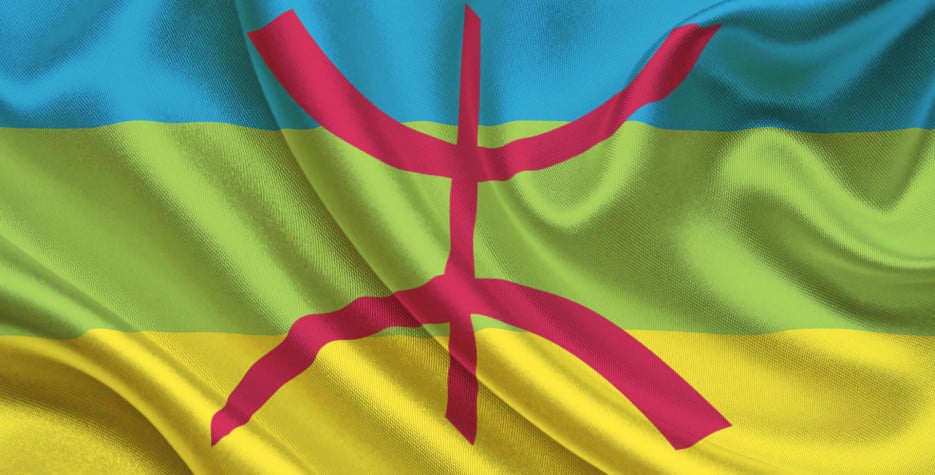When is Yennayer?
Yennayer is a public holiday in Algeria and Morocco on January 12th. It marks the start of the Berber (Amazigh) New Year.
Algeria
In December 2017, President Abdelaziz Bouteflika of Algeria announced that Yennayer would henceforth be a paid non-working day across the country on January 12th.
On May 30th 2018, the members of the Council of the Nation (Upper House of Parliament) adopted the bill modifying and complementing the law on public holidays, establishing Yennayer as a paid national holiday.
Morocco
In May 2023, Morocco's royal palace said the start of the Amazigh New Year will be an official paid holiday much to the delight of Amazigh activists who campaigned for decades for the recognition of their calendar.
The initiative aims to preserve cultural diversity and strengthen the gains made regarding the Moroccan Amazigh identity since the historic speech given by the King in Ajdir in 2001. In this context, the Governing Council adopted two draft decrees setting the list of paid holidays and bank holidays.
For all Moroccans, celebrating the Amazigh New Year as an official paid national holiday, like the first Moharram of the Hegira year and New Year's Day on the Gregorian calendar, is a source of joy which is an integral part of their pride in their Moroccan identity.
The celebration of the Amazigh New Year has a strong symbolic significance reflecting the roots and diversity of the Moroccan cultural fabric as well as the desire to move forward in the effective implementation of the official character of Amazigh. It is also a pragmatic response to the aspirations of the Moroccan people in the context of the promotion of the Amazigh language and culture, and the integration of Amazigh in education and administration.
The initiative to decree Yennayer as an official national holiday gives a strong impetus to the process of implementing measures aimed at strengthening national Amazigh identity, particularly in its cultural dimension. It is also a new step which reinforces the actions intended to meet the challenges which arise in terms of support for Amazigh culture in Morocco and its promotion in different areas by applying the Constitution.
History of Yennayer
Amazigh New Year is filled with dance and songs of love, fertility, and prosperity welcoming the new agrarian year.
The Berber calendar has been in use for many centuries. Its origin is as an agrarian calendar, based around the seasons and agricultural tasks, inspired by the Julian solar calendar.
Yennayer is the Berber word for January. Under the change from Julian to the Gregorian calendar, 12 days were lost, which is why the Berber New Year begins on January 12th.
Some historians say that the calendar dates from the day that King Chachnaq defeated the Egyptian pharaoh Ramses III in 950 BC and established a monarchy that ruled from Libya to Egypt.
Yennayer is a day for the Berber community to showcase their rich cultural and artistic heritage. The New Year will be celebrated with communal feasts consisting of traditional meals of couscous and chicken, dancing, playing traditional games, and horse parades.
The Berbers, who refer to themselves as the Amazigh ('free man'), are descendants of North Africa’s pre-Arab inhabitants. About a quarter of the population of Algeria are Berber.
The Amazigh language and culture and the celebration of Yennayer are not unique to Algeria as there are also significant Berber communities in Morocco, Tunisia, Libya, Mali and Niger. You will even find Berbers in the Canary Islands, in the Egyptian desert and in northern Burkina Faso.
The recognition of the Amazigh New Year with a public holiday is part of an ongoing process to recognise the Amazigh population in Algeria and has been a major claim of the civil rights movement in Algeria since the 1980s.
Home to North Africa's biggest Amazigh population, Morocco long marginalised its language and culture in favour of Arabic and French, giving rise to an Amazigh identity movement which has steadily gained influence.
To mark this new year often called 'called "January Night", a traditional food is orikmen (irkmen), a thick soup made of wheat and dry fava beans. Orikmen is only ever eaten on the first day of the Amazigh New Year. Another popular dish is Tagola, made from corn kernels, argan oil, ghee, and honey cooked and mixed with butter.
The Amazigh people of the southeast prepare couscous for the night of January 12, every year, as a cultural ritual celebrating 'Id Suggas'. Traditionally, they put 'ighs', a seed from dates or "alluz", a piece of almond in couscous.
The person who finds the seed or almond is to be entrusted with the keys of "lakhzin", a room reserved for storing the family’s food, and that person is believed to be ‘blessed’ throughout the whole year. Couscous or seksou in the Berber language was listed in December 2020 as a UNESCO cultural heritage, and is served for the occasion with chicken, sacrificed to welcome a Happy new year.


